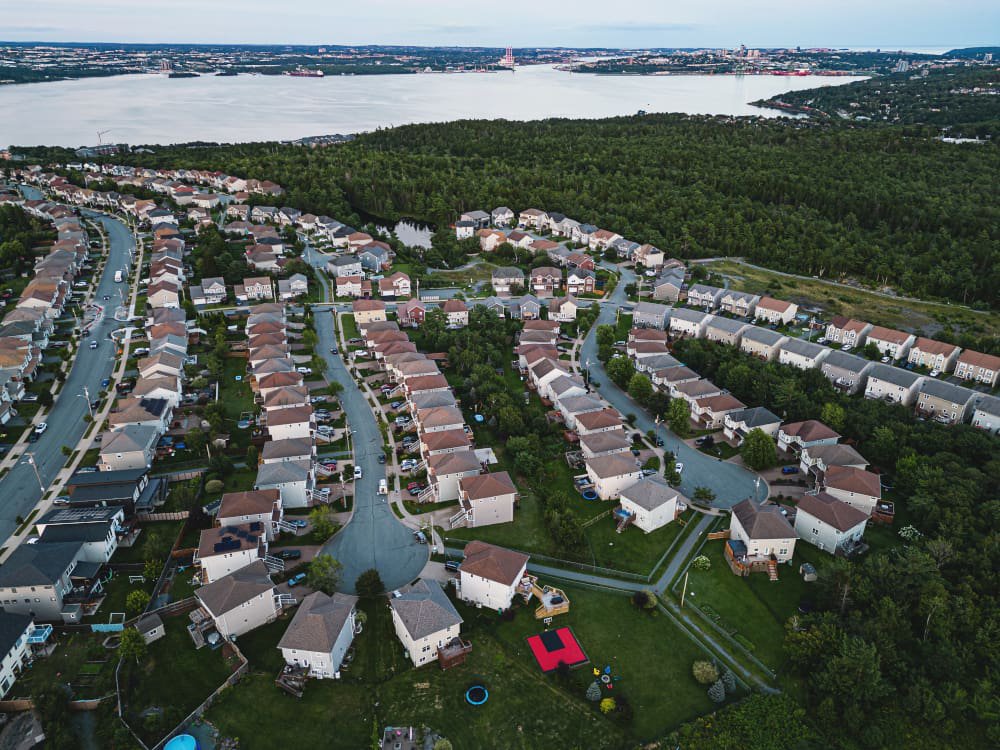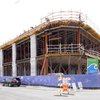Are there Affordable Properties in 2024 and Should You Even Enter the Market?

Over the past few years, the Canadian real estate market has seen fluctuating prices, begging the questions: where can one still find affordable properties in Canada, and is 2024 a good year to enter the market? The following guide looks at what constitutes an affordable property, factors to consider how to enter the real estate market this year, debate on rent versus buy, and gives examples of some saving opportunities with buying affordable real estate.
What is Affordable Property?
The definition of affordable real estate is generally a residence that one can buy without going over a specific percentage common range is between 30-35% of the buyer's income. It is challenging to find truly affordable real estate options in Canada, especially in high-demand centers like Toronto and Vancouver . However, more affordable options are not entirely out of the question-even within these metropolitan areas, entry prices can be surprisingly reasonable in outer areas.
Affordable housing does not necessarily mean low-quality housing. It can mean smaller houses or older properties, or perhaps those in emerging areas. Properties adequate for basic needs without premium amenities and luxury finishes would be in the realm of affordable categories, largely for first-time homeowners or modest budgets. Due to the higher prices for real estate, many purchasers have left for Calgary , Winnipeg, and other areas outside major metropolitan centers within Canada, seeking reasonably affordable homes.
Entering the Real Estate Market in 2024
Delving into the real estate market in 2024 presents a mix of challenges and opportunities. For this year, here are a few critical pointers that the buyer should know, which influence the affordability of property:
- Interest Rates: In the wake of recent changes in interest rates, affordability has become the hot word among buyers across the length and breadth of the country. A high rate increases the cost of borrowing, whereby the mortgage per month will be more expensive, hence affecting the aspect of affordability in general.
- Market Demand and Supply: Demand for housing in Canada remains strong, but such factors as continued population growth and job opportunities are most evident in the provinces of Ontario and British Columbia. However, new policies aimed at cooling the market-foreign buyer taxes and supply-focused measures may balance prices in certain hot markets. Those looking for more affordable real estate in Canada would therefore have a better deal targeting markets with a supply-demand balance, like parts of Alberta or Nova Scotia.
- First-Time Homebuyer Government Programs: With the growing affordability crisis, the Canadian government has launched a series of programs that would assist first-time homebuyers. The First-Time Home Buyer Incentive and the Home Buyers' Plan are examples of programs through which the financial burden of homeownership is lessened, including incentives such as shared equity and tax-free withdrawals from RRSPs. Budding buyers should look at these options to see if they qualify for extra financial help as they enter the market.
In conclusion, although real estate in 2024 can look daunting with economic uncertainties, one can be very calculated. First and foremost, buyers can make far wiser choices by having a sense of how real estate affordability and interest rates interact with market demand and government programs.
Should You Rent or Buy?
Knowing whether to rent or buy is a constant dilemma, especially in high-cost markets. Of course, owning a home can be very rewarding, but renting may be far better in some instances. Here's a look at what should drive your decision:
- Long-term Financial Stability: Owning a home creates equity in the process, and this is one of the greatest financial reasons for purchasing. The monthly mortgage payments add ownership rather than mere rent, with no value thereafter. Buying for those who think to live in the same place for a longer period proves to be an excellent investment.
- Flexibility and Mobility: Renting comes with flexibility that may be ideal if you are relocating for work, educational, or lifestyle reasons. Renters avoid the costs and commitments associated with homeownership: property maintenance, taxes, and market fluctuations.
- Cost Comparison: Many times, renting may be cheaper than buying. This is especially true in very expensive areas such as Toronto . Whether owning is better than renting greatly depends on local markets and the condition of a person's finances. For example, if house prices are very high relative to the cost of renting, it would be practical to rent in such locations.
In short, it comes down to personal conditions, preparedness, and lifestyle. Buyers should study local housing prices, local rent rates, and the buyer's long-term goals before making a decision.
Examples of Saving After You’ve Bought Affordable Property
Buying cheap property could yield long-term savings, versus continuously renting or buying an expensive piece of real estate. Some possible ways homeownership could become financially advantageous after securing affordable property in Canada include:
- Tax Benefits: Homeowners can claim some tax benefits not available to renters; these include property taxes and sometimes mortgage interest. While the Canadian tax laws are not as friendly, as many other countries, the financial advantages of home ownership are considerable and can certainly add up over some time.
- Predictable Monthly Payments: A fixed-rate mortgage allows the homeowner to enjoy predictable monthly payments. The amount to be paid does not increase over time. Contrary to that, rent is sure to increase yearly, especially in high-demand markets. Those purchasing affordable property find predictable housing costs, hence stability, which protects them from fluctuations in the rental market.
- Appreciation Potential: More affordable properties, particularly those in up-and-coming neighborhoods, have great potential for large appreciation in value over time. When an investor purchases these homes, they may get an extremely good return on investment if the value of these properties rises. For instance, an affordable house in a growth market like Hamilton, Ontario, or Halifax, Nova Scotia, could provide high financial returns as those cities continue to grow.
Buying cheap can mean financial security and translate into savings in the long run. With proper budgeting and selection of the place, homeowners will have certain benefits not afforded to renters.
Conclusion
Whether it's affordable to buy a property in Canada, whether entering the real estate market is worth it after 2024-all that depends on one's circumstances and, of course, conditions of the real estate market. Though challenges remain from high interest rates to a limited supply, there are still pockets of affordability, especially in less competitive markets outside major cities.
For tailored guidance on the best options for affordable properties or further explanation of mortgage programs for first-time buyers, contact Clover Mortgage today. Our professionals at Clover Mortgage are ready to assist you in making well-versed decisions and embarking on your journey of homeownership in 2024.
FAQ
What is the most affordable type of housing?
Most affordable housing would consist of single-family homes, condos, and older homes that are found not to be in major urban centers. These types of housing tend to be low purchase prices and cheaper to maintain.
Where in Canada has the most affordable housing?
Some of the most affordable housing in Canada includes such cities as Calgary, Winnipeg, and parts of Atlantic Canada due to the consistency of low property prices when compared to high-demand areas in Toronto and Vancouver.
Where is the most affordable place to buy a house in Ontario?
These include Ontario communities like Windsor, Sudbury, and Thunder Bay, which are relatively less expensive compared to the Greater Toronto Area. Each of these communities offers relatively lower costs of homeownership and a very good quality of life for residents.
Is owning a house actually better than renting?
Owning may pay off financially in the long run, as one can build equity and benefit from the appreciation of the house; however, renting can be more practical, especially for people who value flexibility and low monthly expenses in high-cost markets.
Is it worth buying a house in Toronto?
Given the demand and growth in Toronto, buying a house within the city can be a good investment. However, one should remember that property might be highly valued in cities, and it may be relevant to check if your budget corresponds to the current market condition. If you are a first-time home buyer, you may want to consider other areas where housing is relatively more affordable or consider government programs that could make buying a home a little more accessible within the City of Toronto.





